|
A Brief Report
Capacity Building Programme on
Setting-up / Strengthening Sponsorship Unit for
Resource Mobilization
(organized by Socio Research & Reform Foundation
(NGO)-SRRF, New Delhi,
in partnership with Deepalaya, New Delhi, 13-16
September 2010 at ISI, New Delhi)
Programme & Faculty
SRRF / Deepalaya - Capacity Building Programme on
Sponsorship Unit for Resource Mobilization conducted in New Delhi at
Indian Social Institute, Lodi Road, New Delhi held during the period
13-16 September 2010, was attended by operational staff of NGOs from
India (Rajasthan, Jharkhand, Haryana, Delhi) and Nepal. Anchored by
Mr. Vijay Sardana, President, SRRF and Ms. Sudha Parthasarthy,
Executive Director, Deepalaya, the faculty included Mr. T. K.
Mathew, Chief Executive & Secretary, Deepalaya, Mr. Subhash Mittal,
Secretary, SRRF & Mr. Deepak Bansal, Treasurer, SRRF, Dr. Neena
Verma, Accredited Trainer-Appreciative Inquiry, Gen. Surat Sandhu,
Renowned Trainer-Resource Mobilization, Dr. Pradeepta Nayak,
Executive Director, Sampradan Indian Centre for Philanthropy.
Topics covered during the Training:
Changing Context of Resource Mobilization (Vijay
Sardana)
Charting the changing context of resource
mobilization during the last four decades, wherein Indian NGOs are
increasingly being driven by the agenda of the donors resulting in
sacrificing their own thinking consistent with their vision and
mission. The session concluded by taking stock of the situation in
the current decade, in that international funding agencies (INGOs)
are also raising resources in India, becoming operational by
themselves and bilateral / multilateral aid agencies are
increasingly announcing specific thematic funding in a competitive
(bidding) mode. Raising resources through sponsorship has a
tremendous potential, amply demonstrated by Deepalaya, raising an
average rupees 10 million (one crore) every year over the last 20
years.
Strategic Use of Sponsorship and Types of
Sponsorship (T. K. Mathew)
Raising resources for education or health care of
a child (child sponsorship) is common, but NGOs need to go beyond
this by identifying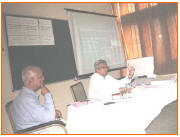 and marketing a variety of products, consistent with the needs of
the community and the potential donor(s). Examples of different
products: sponsorship of a class in a school, salary of a teacher,
community organizer, eye surgery of elderly members of the society
and the like. Raising resources through sponsorship requires
readiness with products, providing options to the potential donor(s),
an updated website, track record of performance and commitment to
efficient communication with the sponsors, accountability and
transparency being important parameters for the success of a
sustainable resource mobilization programme.
and marketing a variety of products, consistent with the needs of
the community and the potential donor(s). Examples of different
products: sponsorship of a class in a school, salary of a teacher,
community organizer, eye surgery of elderly members of the society
and the like. Raising resources through sponsorship requires
readiness with products, providing options to the potential donor(s),
an updated website, track record of performance and commitment to
efficient communication with the sponsors, accountability and
transparency being important parameters for the success of a
sustainable resource mobilization programme.
Appreciative Inquiry for Resource Mobilization
(Dr. Neena Verma)
Appreciative inquiry (AI) is the art of inquiring
into & about change / growth agenda with an appreciative
orientation. In summary, AI combines ‘Appreciate’ and ‘inquire’
together like ‘Hydrogen and Oxygen’ to create generative forces; AI
makes available information and commitment that together create
energy for positive change; AI creates a context for people to be
included and heard, helping particularly well during times of
change; AI turns cultures of control and direction into those of
cooperation and interaction; AI builds relationships enabling people
to be known in relationship, rather than in role.
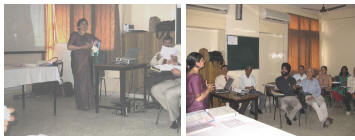
Opportunities for Tapping the Resources (Gen.
Surat Sandhu)
Resource mobilization defined in terms of "The
art of getting people to give you what you want, where and when you
want it, for the work you do". Sponsorship is about ‘Getting someone
to support your work, one on one’. Potential for resource
mobilization in India is Rs. 75,000 crores (Rs. 750,000 million)
from individuals / companies against which we raise currently Rs.
90,000 million only from individuals / companies; the potential
being 8 to 9 times of the current giving.
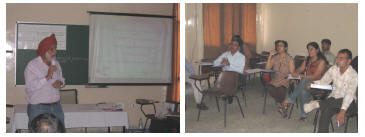
Resource Mobilization & Community Foundations (Pradeepta
Nayak)
Community Philanthropy (CP) is an act of
individuals and institutions contributing money or goods along with
their time, talent and skills to promote the well being of others
and betterment of the community they live in. CP can be expressed in
two ways: Informal & spontaneous ways, in which citizens and local
businesses helping other residents in times of crisis; and Formal &
Organized ways, in which contributions to local organizations to
support projects of the local community on a long term basis.
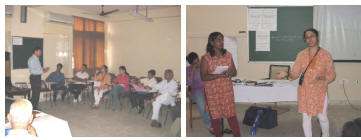
Resource Mobilization-Accountability &
Transparency (Subhash Mittal)
Essentiality of accountability and transparency
frameworks for a successful and sustainable implementation of a
sponsorship programme were dwelt upon. How these frameworks could be
developed explained and how these should become the focus around
which the processes needed for setting-up a sponsorship programme
were discussed.
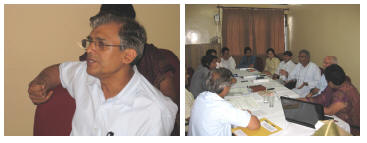
Taxation & Tax Exemptions Deepak Bansal)
The presentation covered changes stipulated in
the proposed Foreign Contribution Regulation Act 2010 (FCMC 2010);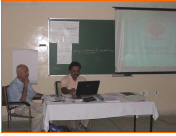 including renewal of FCRA registration every five years, provision
to open Sub-FCRA Bank accounts, Banks would need to intimate receipt
of any remittance above certain amount to the authorities; as also
the recipient organization will need to do the same. The session
also covered provisions of Direct Tax Code 2010, as applicable to
NGOs. Chapter IV (Section 90 to 103) covers the taxation of NGOs;
cash basis of accounting for non Section 25 company and in the case
of Section 25 company the basis of accounting will be merchantile.
including renewal of FCRA registration every five years, provision
to open Sub-FCRA Bank accounts, Banks would need to intimate receipt
of any remittance above certain amount to the authorities; as also
the recipient organization will need to do the same. The session
also covered provisions of Direct Tax Code 2010, as applicable to
NGOs. Chapter IV (Section 90 to 103) covers the taxation of NGOs;
cash basis of accounting for non Section 25 company and in the case
of Section 25 company the basis of accounting will be merchantile.
Essential Features of Sponsorship (Sudha
Parthasarthy)
Presentations spread over three days covered
Product Development for Sponsorship, sponsorship options and their
costing, preparedness for sponsorship, developing MIS (Management
Information Systems), Accounting and Communications Systems. Formats
for Case History (Study) production, periodic communication with the
donor, Annual progress Report, etc., discussed in detail.
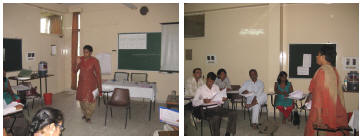
Field Visit to RJRN-Deepalaya School and
Deepalaya Vocational Centre
Participants had the opportunity of witnessing
first hand the sponsorship in action by visiting the NGO- Corporate
partnership school in the slums of South Delhi. It is a partnership
of the Narang Group of Industries with Deepalaya, in which the
infrastructure (school building + maintenance) is provided by the
Narang group and the school is run / managed by Deepalaya. Minimal
fee is recovered from the parents and the short fall in resources is
managed by Deepalaya through sponsorship funding. Similarly, in the
vicinity of the school, a Deepalaya Vocational Centre is
functioning, with substantial resources being raised through
sponsorship. The vocational centre offers courses from three months
to one year in computer training (hardware and software), Beauty
culture, Air-condition and Refrigeration repairs, etc.
Highlights of the programme included role play by
participants in resource mobilization relating to community
foundations and appreciative inquiry exercise in groups of two and
six.
The programme designed for setting up /
strengthening sponsorship unit for resource mobilization provided a
great deal of insights to the participants on raising resources from
within their immediate communities, be it in cash or kind (human,
material and / or inspirational). Deepalaya, is an example of
raising Rupees one crore (10 million) a year on an average over the
last 20 years served as a great booster for the participants.
Ongoing Support
Program ended with presentation by each
participant on how they plan to set-up or strengthen their
sponsorship units.
SRRF / Deepalaya has committed to the
participating NGOs their professional expertise for providing hand
holding support in setting-up / strengthening their sponsorship
units. Out of the participating organizations, at least three
indicated their clear plans for setting-up Sponsorship Units within
their organizations. SRRF / Deepalaya will be cooperating with these
organizations in their laudable endeavors.
Certificate of Participation
At the concluding session, each participant was
provided a Certificate of Participation. A few of the photographs
are given below: -
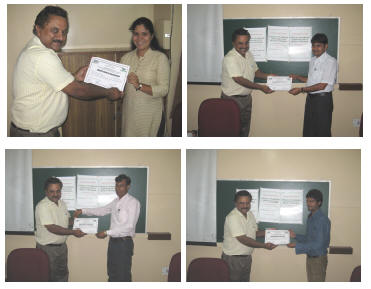
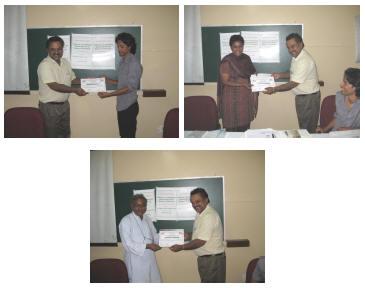
|